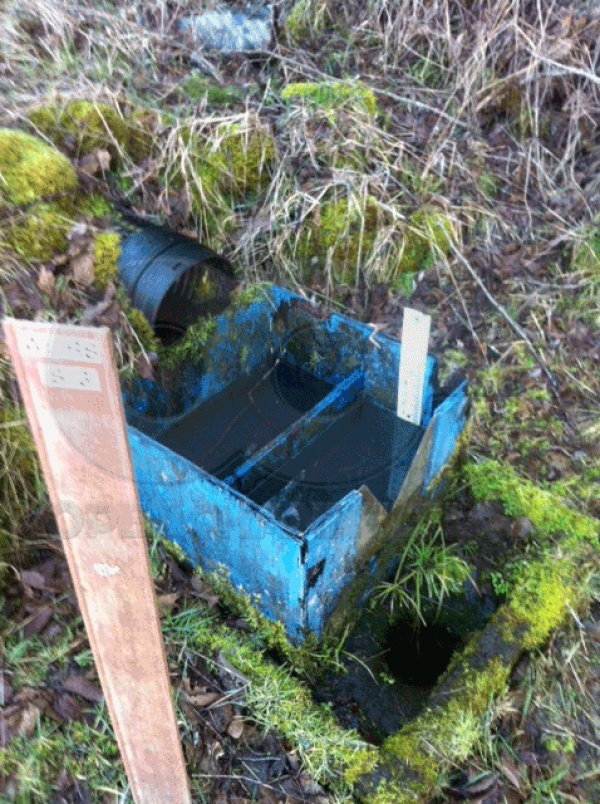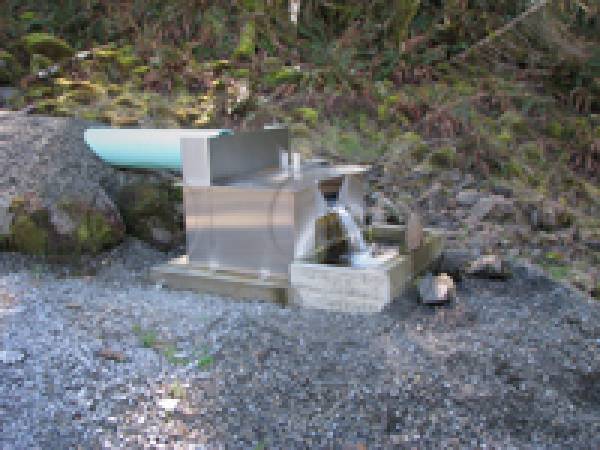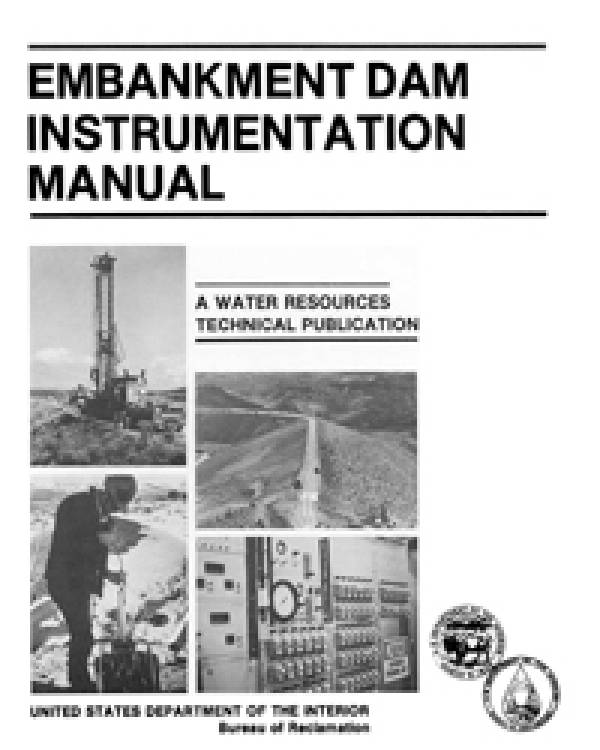This website uses a variety of cookies, which you consent to if you continue to use this site. You can read our Privacy Policy for
details about how these cookies are used, and to grant or withdraw your consent for certain types of cookies.
Shallow, Sub-Surface Dam Seepage Monitoring
Reinforced Weir Boxes are a convenient way of measuring seepage flows out of a dam when the pipe is just below grade. Reinforcing the sidewalls of a weir box can allow the structure to withstand the pressures exerted by the soil in shallow burial applications.
In these applications, the top of the weir box is typically set flush with the surface grade, allowing the body of the box to be buried – usually up to 36-inches [91.44 cm] deep. For applications where the seepage line is just below the surface grade, the top of the weir box can be extended up above the grade to allow easy access to the box’s interior.
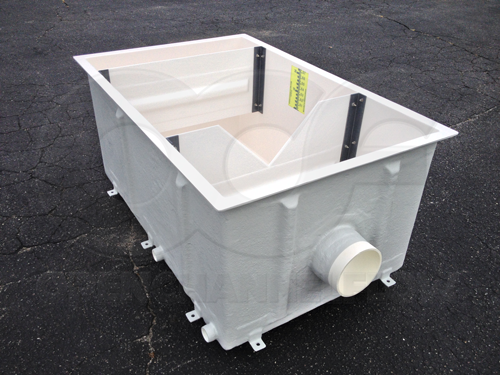
In either application, the weir box is secured to a concrete pad through the use of stainless steel wedge anchors, which are run through the holes drilled in the anchoring clips around the perimeter of the bottom of the weir box.
For applications where the seepage line coming out of the dam is further below grade, the sidewalls of the box may be extended or a purpose built fiberglass packaged metering manhole (incorporating either a flume or weir) used.
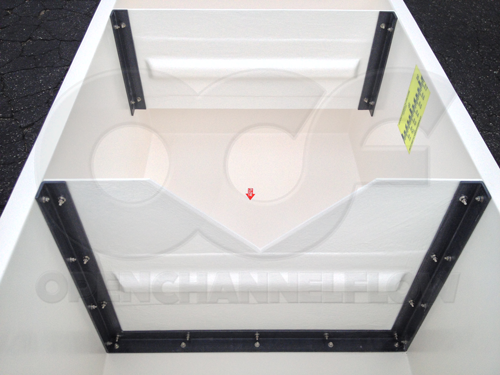
In sizing a weir box for seepage flows is it important to not only size the box to handle current flows, but also to size the structure so that it can handle future flows. This can be accomplished by either increasing the physical size of the box or designing the weir box in such a way that the weir plate can be removed and replaced as flows change.
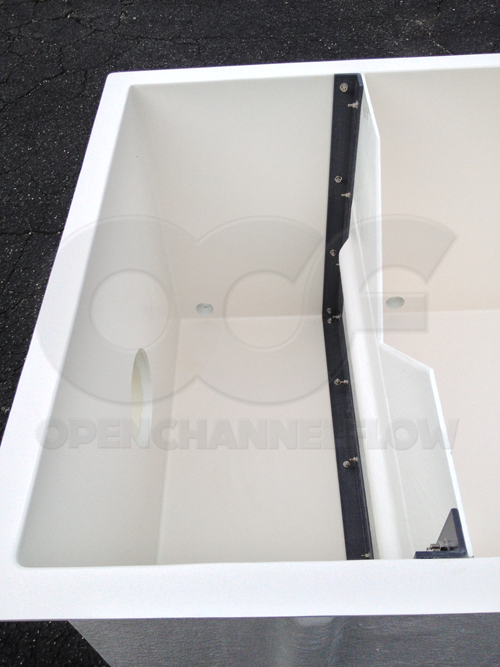
One optional feature that can be useful in weir boxes used for seepage monitoring is a clean-out port. Placed on the upstream side of the weir plate, a clean-out port allows for the easy removal for future analysis of sediments and debris that are in the seepage flow stream. Depending upon the application, a clean-out port may also be present in the portion downstream of the weir plate.
Related Blog Posts
Explore more insights in our blog.

LOCATIONS IN ATLANTA, GA & BOISE, ID



